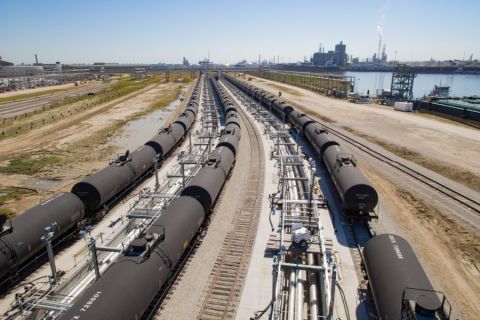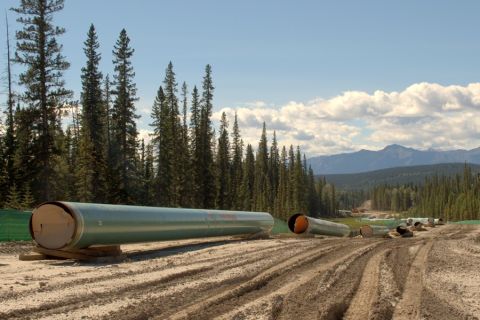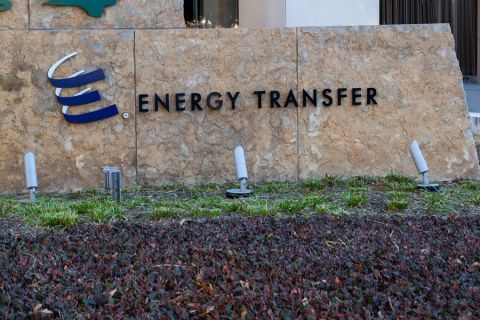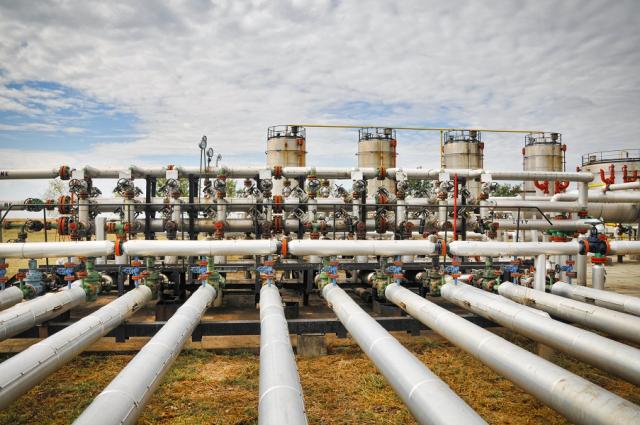
Interest in RSG certification is growing, experts say. (Source: Shutterstock)
Choosing a responsibly sourced gas (RSG) certification is a bit like deciding on the best airline to fly a few years after the Wright Brothers’ first flight.
The nascent RSG market is voluntary. Certifications lack standardization. And investors and regulators are watching.
Expect some turbulence.
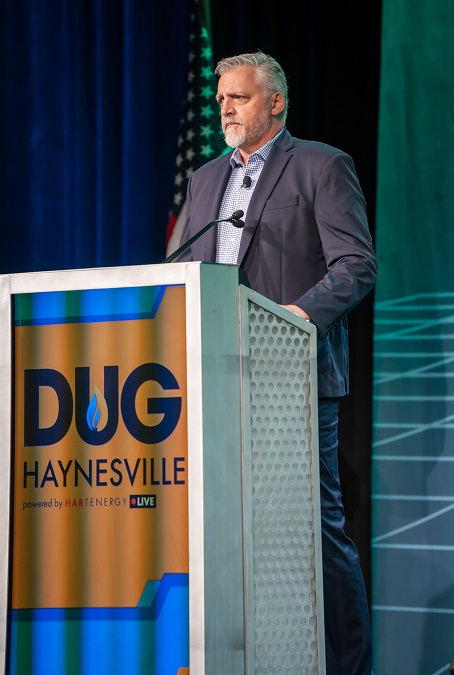
As upstream — as well as midstream and downstream — companies look to obtain RSG certifications, the process can seem daunting even as tasks are accomplished, and progress is made, experts said in March at Hart Energy’s DUG Haynesville Conference & Exhibition in Shreveport, Louisiana.
Certification of natural gas as RSG requires quantifying emissions with technology, rigorous environmental assessments, collecting hundreds of data points, reviewing monitoring programs and finding and fixing problems to meet a set of principles or standards that vary depending on which independent third-party firm is certifying RSG.
However, “It’s a lot less painful than you would think it might be,” said Corey Jordan, senior sustainability adviser for Equitable Origin. “It’s not a quick process by any means. It’s a lengthy, fully developed process, but it’s really rewarding.”
And RSG has attracted more attention — from foreign buyers and utilities — in recent years amid growing focus on environmental stewardship and sustainability.
Growing RSG interest
Demand for RSG certification is coming from both public and private companies, conference panelists said.
“I think it’s probably got a lot to do with the opportunity to recover some of these costs and such that go into the added activity of measurement and reporting,” Jordan said.
It has not been a “name and shame” driven initiative in the U.S., Lara Owens said, director of science and technology for MiQ, a company that launched a greenhouse-gas (GHG) certification and registry for LNG in March. “A lot of companies were really excited to learn more and they wanted to understand the value proposition.”
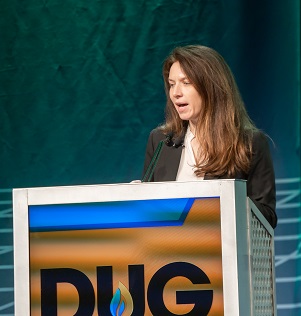
Certification costs were usually the last thing that came to mind for companies interested in RSG, she added. The foremost concern: having enough people to do the work and getting enough buy-in from management to address obstacles.
Many companies had already began work around water and emissions before RSG certification began to take off, said Steve Wilson, market development adviser for Project Canary.
“From there, the landscape has continued to move forward,” he said. “Utilities are starting to understand the benefit. International buyers are starting to understand the benefits. So, it’s been a groundswell of work, and the producers have really done a great job of embracing it and moving forward.”
MiQ is seeing interest not just from investors, Owens said, but also from developers of new projects wanting to be certified once they are up and running. Equitable Origin is seeing new interest from private equity-backed companies, Jordan said.
For Project Canary, “it started with the producers,” said Wilson, noting E&Ps want to include the information in sustainability reporting or capture certain metrics that may be tied to loans or insurance.
“But we’re seeing more interest when you start to move downstream,” he said. “We’re starting to see pipelines that are interested in it and LNG facilities that are interested in it. So, it’s taken a really nice move forward to incorporate all of the supply chain.”
Getting started with certification
Knowing which third-party firm to work with can be challenging, given the lack of an overarching framework.
“In any voluntary market, you get a lot of different flavors,” Owens said, pointing out varying certifications. “Some [companies] want to try a certain type of technology. They like the quantitative aspect. Some of them might be looking for methane while they’re [also] looking for other social and governance aspects.”
MiQ is “laser focused” on methane because the firm wants methane-related metrics to be a globally-driven differentiator of natural gas, she said.
With no binding regulations, certification is driven by a company’s goals and how an E&P wants to differentiate its natural gas in the market, according to Jordan. He noted Equitable Origin in some instances works with MiQ.
Jordan sees possible movement toward holding certifications from multiple firms such as MiQ, Equitable Origin and TrustWell by Project Canary for added value.
“It’s not there yet, but there’s some thought to how things could go,” Jordan said.
Interest appears to be growing in what all the firms offer.
From the certifiers
Project Canary takes a product portfolio approach. With TrustWell, for example, focus is on environmental risk assessments covering air, land, water and community. Project Canary conducts site visits and interviews for each assessed asset.
Methane management is assessed with continuous monitoring technology, while models are used to quantify total site emissions and develop hourly mass-value emissions profiles by equipment, Wilson said in his presentation. Operators’ assets are evaluated annually, providing an opportunity to improve ratings.
Wilson said Project Canary uses real-time emissions data, drones and machine-learning algorithms, as well as meteorological, atmospheric, topography and temporal data to gather quantifiable information.
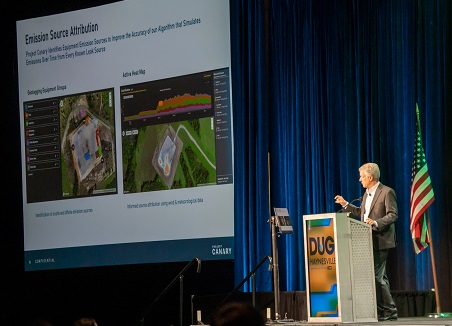
“We need to differentiate what leaks are coming from on site and off site. And then finally, we’re able to combine other information sources that can come in from other devices, not just the Canary,” he said. The firm’s Sense platform has centralized emissions data from all sources ranging from ground to air.
MiQ, a not-for-profit foundation, operates a digital registry and focuses on company practices, deployment of monitoring technology and methane intensity.
Billing MiQ as a one-stop solution, Owens said, “we look at abatement. We look at monitoring, and we also look at quantification. We also knew that for the RIN [renewable identification number] market and REC [renewable energy certificate] market, in order for this to work well, we have to have a digital registry.
“We don’t need much more than that. It’s a pretty simple concept, and this has to be interoperable, again, with marketplaces and the trading platforms.”
About 12% of North American gas production—or 15 certifications totaling about 13 Bcf/d—is certified under Equitable Origin’s EO100, which is based on principles ranging from corporate governance, transparency and ethics to human rights to occupational health, safety and fair labor among many other criteria.
Jordan said he frequently hears from producers going through certification process that say certification helped them discover holes or gaps in their systems. E&Ps also find that “they’re doing a better job of meeting a lot of these standards than they thought.”
“I'm not here to tell you that it’s easy,” he said, “but it’s worth the time and worth the effort.”
Recommended Reading
Canadian Railway Companies Brace for Strike
2024-04-25 - A service disruption caused by a strike in May could delay freight deliveries of petrochemicals.
Enterprise’s SPOT Deepwater Port Struggles for Customers
2024-04-25 - Years of regulatory delays, a loss of commercial backers and slowing U.S. shale production has Enterprise Products Partners’ Sea Port Oil Terminal and rival projects without secured customers, energy industry executives say.
Report: Crescent Midstream Exploring $1.3B Sale
2024-04-23 - Sources say another company is considering $1.3B acquisition for Crescent Midstream’s facilities and pipelines focused on Louisiana and the Gulf of Mexico.
For Sale? Trans Mountain Pipeline Tentatively on the Market
2024-04-22 - Politics and tariffs may delay ownership transfer of the Trans Mountain Pipeline, which the Canadian government spent CA$34 billion to build.
Energy Transfer Announces Cash Distribution on Series I Units
2024-04-22 - Energy Transfer’s distribution will be payable May 15 to Series I unitholders of record by May 1.


